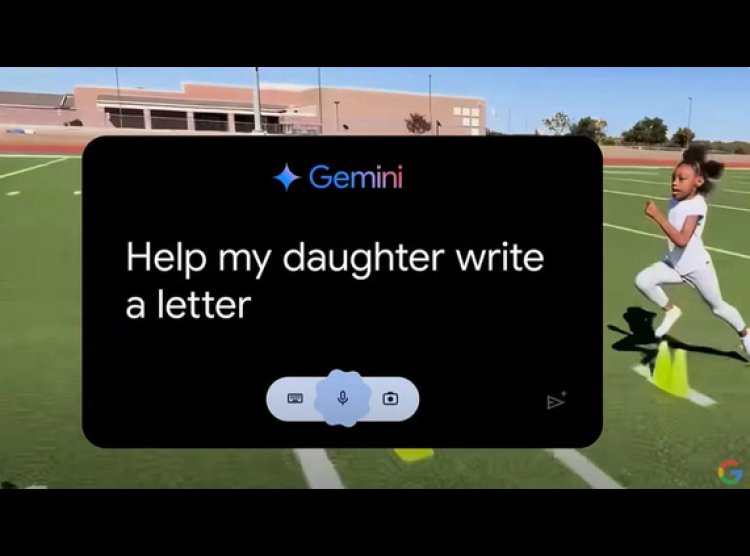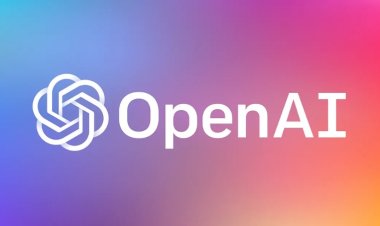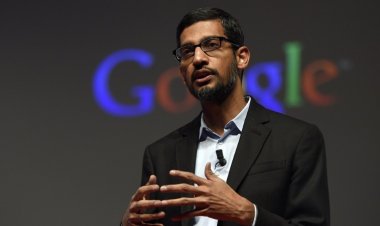AI Writes Letters, Viewers Say; ‘Stick to Your Own Pen!
Ads featuring AI’s creative chops face backlash for ‘cold’ touch

There’s a growing concern over ads that depict artificial intelligence (AI) performing creative tasks, as audiences increasingly express discomfort with such portrayals. A recent example is Google’s ad for the Paris Olympics, which showcased a father using the company’s generative AI, Gemini, to write a letter to his daughter’s idol, Sydney McLaughlin-Levrone, a track athlete.
The ad sparked significant backlash, as many viewers felt uneasy about the AI-generated letter, perceiving it as a cold and impersonal substitute for genuine human expression. Critics argued that such ads highlight the changing relationship between people and technology, often in ways that seem unsettling. Shelly Palmer, a professor at Syracuse University’s S.I. Newhouse School of Public Communications, voiced this sentiment strongly, criticizing the ad for promoting reliance on AI for tasks that should foster human skills, like authentic communication. Palmer condemned the ad, stating that instead of teaching his daughter to express herself, the father in the ad was encouraging dependence on technology for such a critical human ability.
In response to the backlash, Google defended its ad, asserting that while AI can enhance human creativity, it should not replace it. This reflects a broader tension as people grapple with the rapid advancement of AI technology. Despite the promises of convenience and efficiency, many still harbor deep-seated concerns about AI’s potential to encroach on various aspects of human life—a fear often fueled by dystopian portrayals in popular culture.
Adding to the discomfort is the recent history of job losses in major tech companies like Google and Meta, both of which are key players in the AI race. The layoffs have left a lasting impression on the public, reinforcing the idea that technological advancements, particularly in AI, may lead to further job displacement. This, combined with the fast pace of AI development, has left many feeling uneasy about the future.
This apprehension was also evident in the reception of Apple’s "Crush" ad from April 2024, which was criticized for depicting technology as commandeering, rather than complementing, human creativity. Both Apple’s and Google’s campaigns have encountered significant criticism, indicating a growing wariness among viewers toward ads that feature AI taking on human-like roles. However, it’s unclear if this will significantly impact consumer loyalty to these brands.
To explore whether showcasing AI in ads might alienate viewers, several creative leaders shared their perspectives. Amit Wadhwa, CEO of Dentsu Creative, believes that AI itself is not a deterrent in advertising. However, he suggests that the negative reaction to Google’s ad likely stemmed from the fact that a letter from a daughter to her favorite athlete is deeply personal and should be heartfelt, not generated by AI. Wadhwa emphasizes that while AI has been used creatively in other campaigns, it’s crucial to employ it in a way that enhances rather than detracts from human connection.
Binaifer Dulani, founding partner and creative at Talented, notes that historically, technological advancements have often led to more work, not less. Dulani expresses a visceral reaction to AI’s involvement in creative tasks, arguing that while brands like Google have successfully positioned AI as a tool to execute human vision, there’s a fundamental discomfort with the idea of AI replacing human creativity.
Santosh Padhi, chief creative officer at Wieden + Kennedy India, adds that while technology like Photoshop or CGI has long been used to enhance advertising, there’s a fine line between enhancement and overshadowing the core idea. Padhi argues that when AI-generated content becomes too prominent, it can undermine the emotional connection that is central to effective communication.
While AI can undoubtedly offer new possibilities in advertising, the recent backlash against ads featuring AI performing human-like tasks suggests that audiences are not yet comfortable with technology encroaching on deeply personal and creative domains.

 Sumit Rawat
Sumit Rawat 










